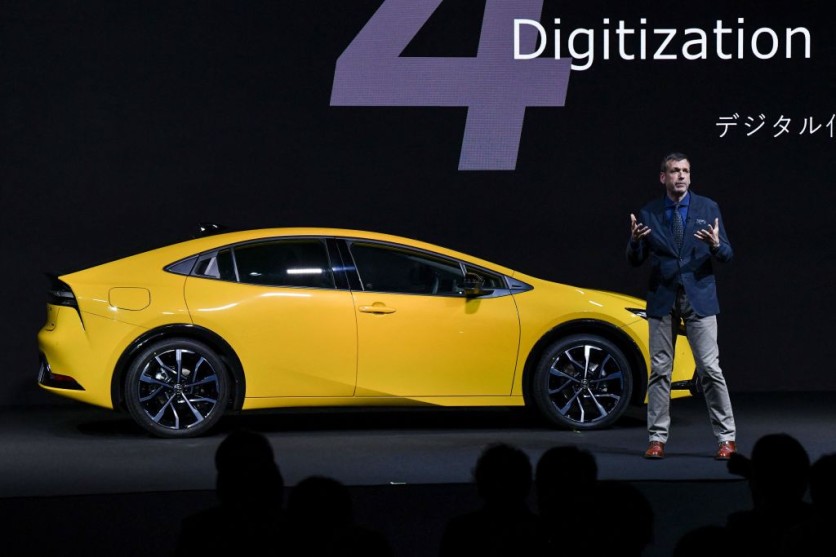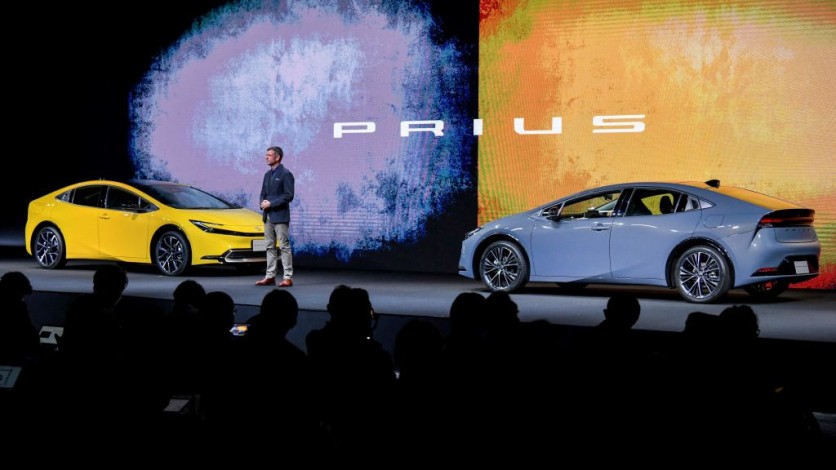The brand-new Toyota Prius hybrid boasts more power, speed, and range than its predecessor. A sleek, futuristic design replaces the somewhat stuffy angular base, making it more modern, according to a report by AP.

Fifth-Gen Prius Hybrid Cars
The automobile was unveiled in Tokyo on Wednesday by Simon Humphries, senior general manager of Global Toyota Design, who emphasized that the firm was continuing to defy the doubters who keep wondering how long the Japanese automaker will continue with hybrids in an increasingly electrified sector.
"Simply because the Prius is an eco-car within everyone's reach. To achieve carbon neutrality, everyone in the world must participate. We need ecological solutions within reach of many. And it needs to start today, not tomorrow," Humphries said in a statement quoted by AP.
This winter, the fifth-generation Prius hybrid cars will be on sale, first in Japan and subsequently in the United States. Next year, a plug-in model will be available, according to Toyota Motor Corp.
However, the prices for these new cars were not made public yet.
A smaller, lighter lithium-ion battery was installed by the automaker in place of an older nickel-metal hydride battery. As a result, there will be a nearly doubling in horsepower, faster acceleration, and a 50% increase in range, according to AP.
The Prius, which debuted in 1997, alternates between a gasoline engine and an electric motor to provide cleaner driving than vehicles with standard internal combustion engines.
According to Humphries, the new Prius was designed to be more stable, have a lower center of gravity, larger tires, curvy lines for its overall look, and have a luxurious interior.
He stated it was more of a manifestation of love than a commodity. He noted that alternative steps to popularize the technology might include producing hybrid taxis or making them available to other manufacturers, both of which Toyota decided against.

Competing With Other Hybrid Models
According to Stephanie Brinley, chief automotive analyst for S&P Global Mobility, the Prius will be better able to compete with other hybrid models as well as the current generation of electric vehicles thanks to its updated appearance and efficiency.
Prius models have historically served as a bridge when there are more EV charging stations, according to Brinley, who believes the new Prius performs better against hybrids and plug-ins from rivals such as Kia, Ford, and Hyundai.
It can cover the typical American driver's commute and local errands by extending the battery range by 50%, or around 38 miles (61 kilometers). Brinley added that the hybrid powertrain enables road trips without having to worry about an incomplete charging network.
Related Article : Toyota Considers Major Changes to Its EV Plans Due to Tesla's Manufacturing Strategy
This article is owned by Tech Times
Written by Jace Dela Cruz
![Apple Watch Series 10 [GPS 42mm]](https://d.techtimes.com/en/full/453899/apple-watch-series-10-gps-42mm.jpg?w=184&h=103&f=9fb3c2ea2db928c663d1d2eadbcb3e52)



